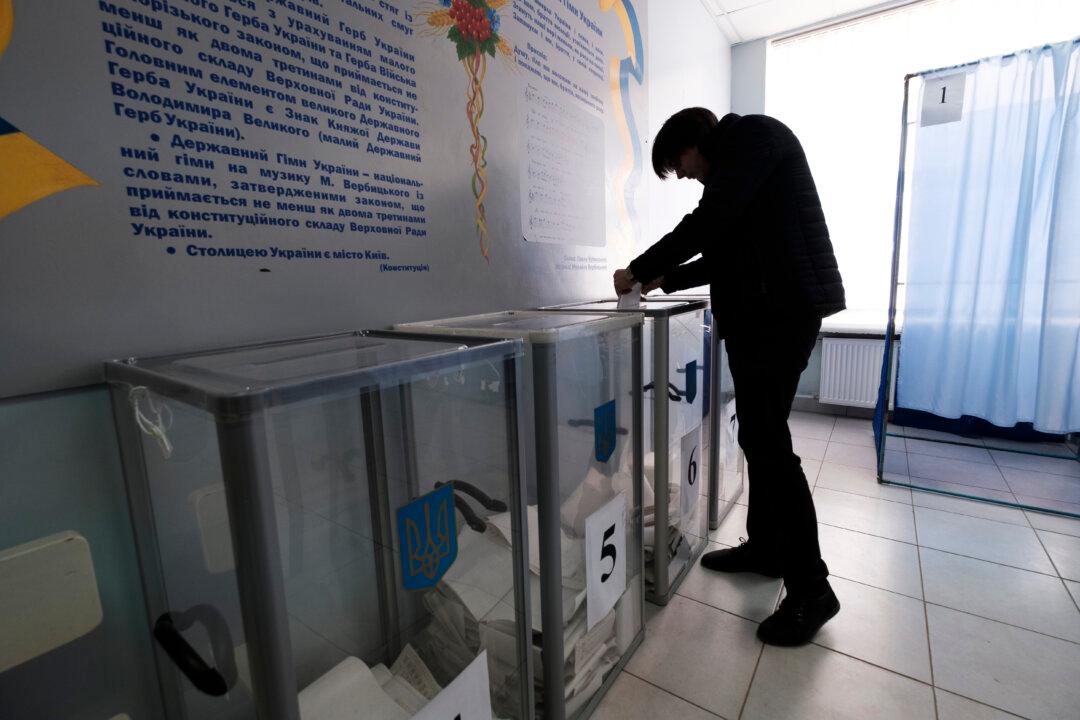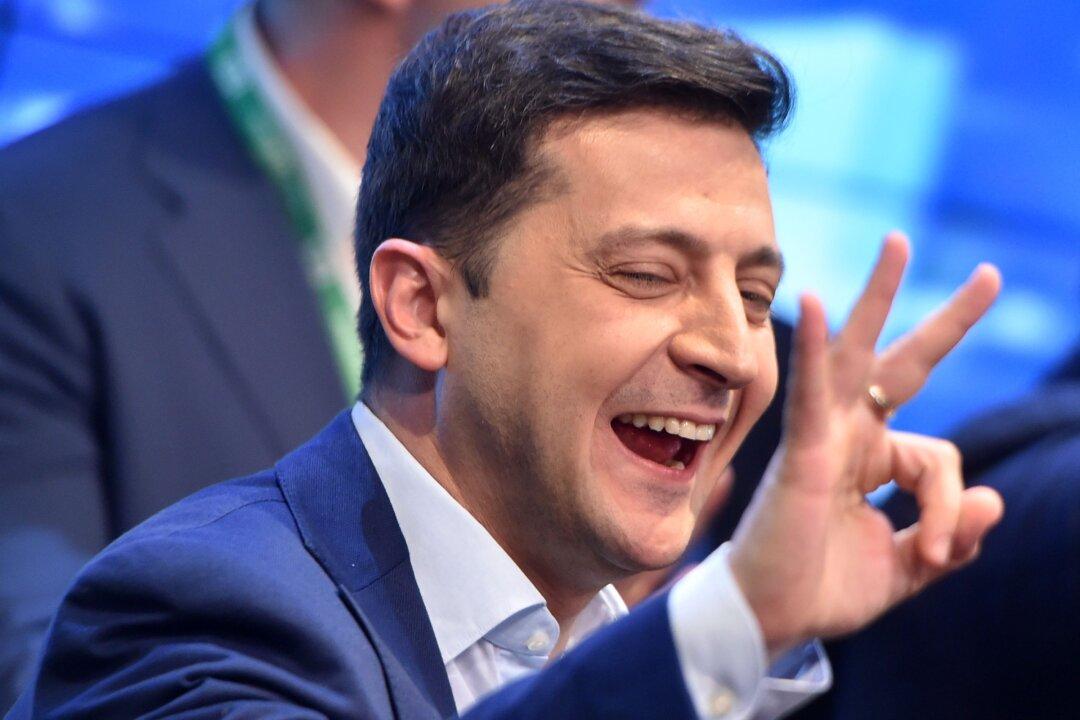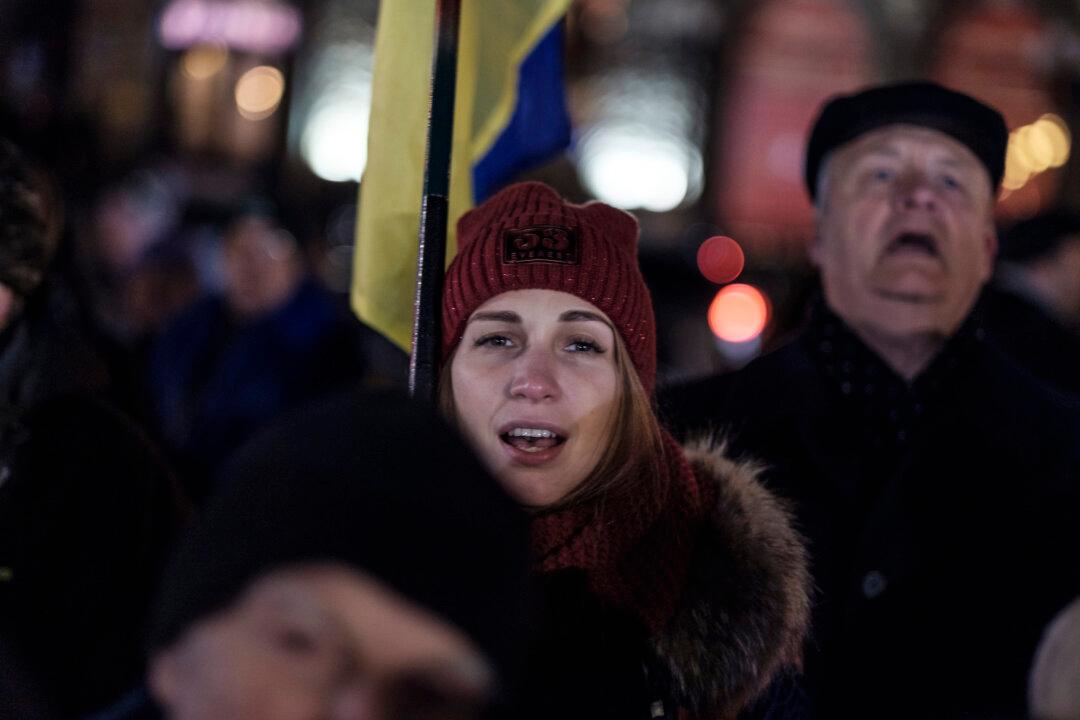KHARKIV, Ukraine—Stepping into the voting booth, Tatiana Ovcharova wasn’t quite sure who she was going to vote for, even after working as an election observer for the campaign of Ukrainian presidential candidate Volodymyr Zelensky. But now that the comedian-turned-politician has a strong lead heading into the second round of voting, Ovcharova thinks she made the right choice.
“He may have bitten off more than he can chew,” Ovcharova said. “But if it is a choice between a dishonest person and an inexperienced but smart person, I would choose the inexperienced person.”


